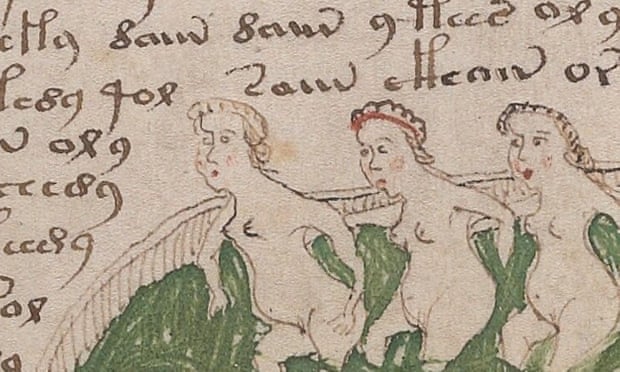Bristol distances itself from academic who claims to have solved century-old mystery
Source: The Guardian
A university that breathlessly declared one of its academics had cracked the code of the celebrated Voynich manuscript has been forced into an embarrassing climbdown after medieval experts poured scorn on his theory.
Bristol University said this week Dr Gerard Cheshire had “succeeded where countless cryptographers, linguistics scholars and computer programs have failed” by identifying the language and purpose of the mysterious and apparently coded 15th-century text.
Although the meaning of the volume, held at Yale University, had eluded experts for more than a century, the university said Cheshire had solved the puzzle in just two weeks “using a combination of lateral thinking and ingenuity”.
Cheshire argued Voynich was a therapeutic reference book composed by nuns for Maria of Castile, queen of Aragon, and the sole surviving text written in a lost language called “proto-Romance”. He described his findings as “one of the most important developments to date in Romance linguistics”.
Cheshire’s paper was peer-reviewed and published in the established journal Romance Studies, but not every expert in the field of medieval literature was convinced. “Sorry folks. This is just more aspirational, circular, self-fulfilling nonsense,” tweeted Dr Lisa Fagin Davis, executive director of the Medieval Academy of America, in one of the kinder assessments from its critics.
Now the university has deleted its article about the research, saying concerns had been raised “about the validity of this research from academics in the fields of linguistics and medieval studies”.
Having previously described Cheshire as “a University of Bristol academic”, the university is taking pains to distance itself from him. It said: “The research was entirely the author’s own work and is not affiliated with the University of Bristol, the school of arts nor the Centre for Medieval Studies”.
Asked for his reaction, Cheshire told the Guardian he felt “no disappointment at all” at the university’s backtracking. “It was inevitable and expected, given the passion that the manuscript arouses, that a marginal group would find it difficult to accept new evidence,” he said.
“The paper has been blind peer-reviewed and published in a highly reputable journal, which is the gold standard in scientific corroboration. Thus, all protocol was followed to the letter and the work is officially supported. Given time, many scholars will have used the solution for their own research of the manuscript and published their own papers, so the small tide of resistance will wane.”
Bristol University said it would “seek further validation” in discussions with the journal. The Guardian has contacted the editor of Romance Studies for comment.

































Leave a Comment
You must be logged in to post a comment.